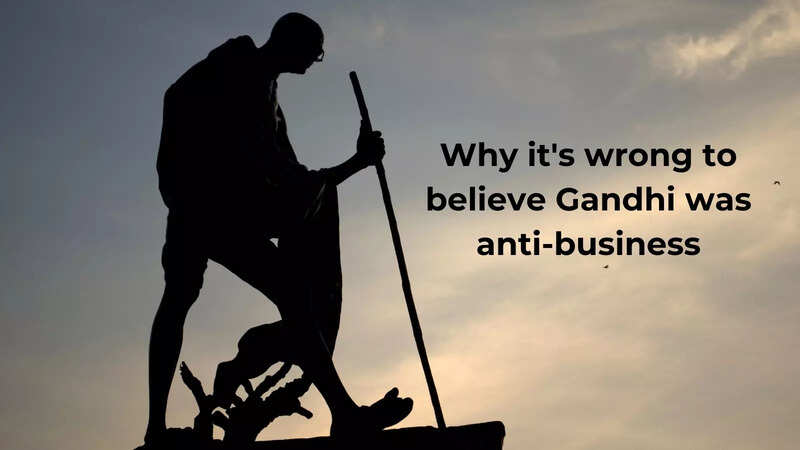
- Jaithirth Rao
- TIMESOFINDIA.COMUpdated: Oct 1, 2021, 21:55 IST IST
A new book explores the economic philosophy of the 'Father of the Nation' and how his views on trade and wealth may have been in part a function of his caste origins
Author Rajni Bakshi writes: "Gandhi’s asceticism in later life tends to obscure the fact that he often reminded people that he is a “vanika putra”, the son of a baniya (merchant)." In another context, Gandhi’s American admirer [and journalist] William Shirer writes: "There was something of the banian trader in Gandhi, reflecting the caste from which he came"; and Gandhi himself remained a supporter of the caste system, although he did hedge himself even as early as in 1921, when he wrote in as follows: "I believe in the varnashrama dharma in a sense, in my opinion, strictly Vedic but not in its present popular and crude sense."
Gandhi’s attempt at a nuanced distinction between the caste system and the so-called traditional varnashrama dharma remained with him all his life. Gandhi’s positive approach to business, trade and wealth may have been in part a function of his caste origins. It was also reflected in many of his actions. He went to South Africa as an attorney for Gujarati Muslin merchants who themselves originally belonged to the Bania caste and were relatively recent converts to Islam. In South Africa, two of his important associates, Polack and Kallenbach, were Jewish businessmen.
Gandhi’s attempt at a nuanced distinction between the caste system and the so-called traditional varnashrama dharma remained with him all his life. Gandhi’s positive approach to business, trade and wealth may have been in part a function of his caste origins. It was also reflected in many of his actions. He went to South Africa as an attorney for Gujarati Muslin merchants who themselves originally belonged to the Bania caste and were relatively recent converts to Islam. In South Africa, two of his important associates, Polack and Kallenbach, were Jewish businessmen.
